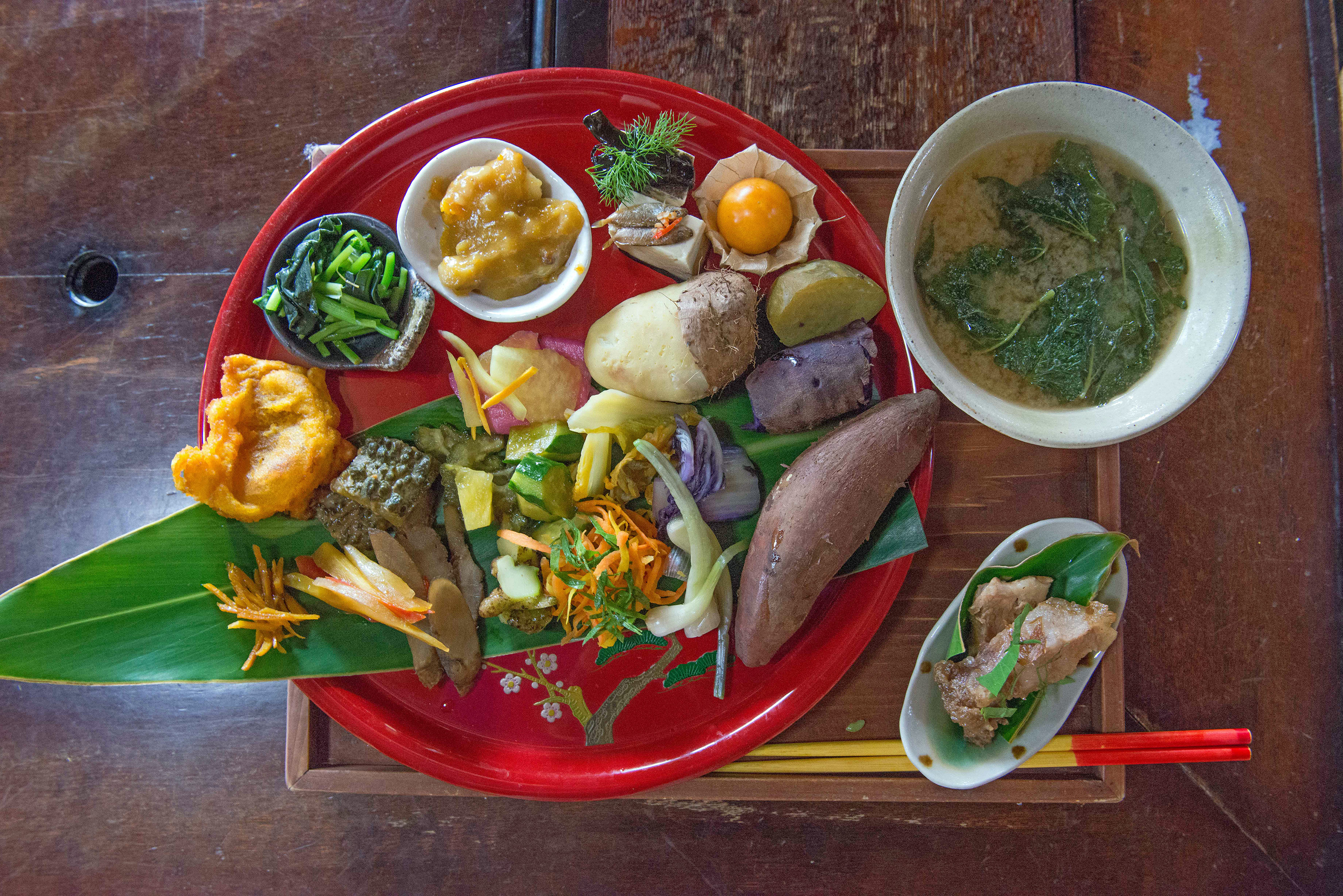Young and middle-aged Okinawans are among the most enthusiastic consumers of junk and processed food in Japan. American fast food and a sugar-rich diet have burdened islanders — who once lived staggeringly long lives — with the highest body-mass index rates in the country. Middle-aged men, in particular, now suffer from inordinately high rates of heart-related diseases and obesity. The longevity of Okinawa's elders stands in stark contrast to the health issues of younger islanders. However, there is resistance to this trend, and it's coming from Okinawan chef Kiyoko Yamashiro in a little town called Kin.
Entering Kin you may think you have stumbled on a post-apocalyptic scene of abandonment. This is a nocturnal town: its girlie bars, tattoo parlors, grill rooms and tailor shops are, for the most part, closed during daylight hours, leaving its streets empty, bruised and shabby.
Host to U.S. base Camp Hansen, almost 60 percent of Kin falls under the control of the U.S. military — a huge swath of occupied land, even by Okinawan standards. Aside from the base, Kin is associated with taco rice, a Mexican-Japanese culinary hybrid that was developed here and has become a staple of U.S. servicemen and Japanese tourists. The dish is an unholy mix of taco-flavored ground beef, white rice, shredded lettuce, tomato and cheese, all topped with lashings of piquant salsa and a fried egg.

















With your current subscription plan you can comment on stories. However, before writing your first comment, please create a display name in the Profile section of your subscriber account page.